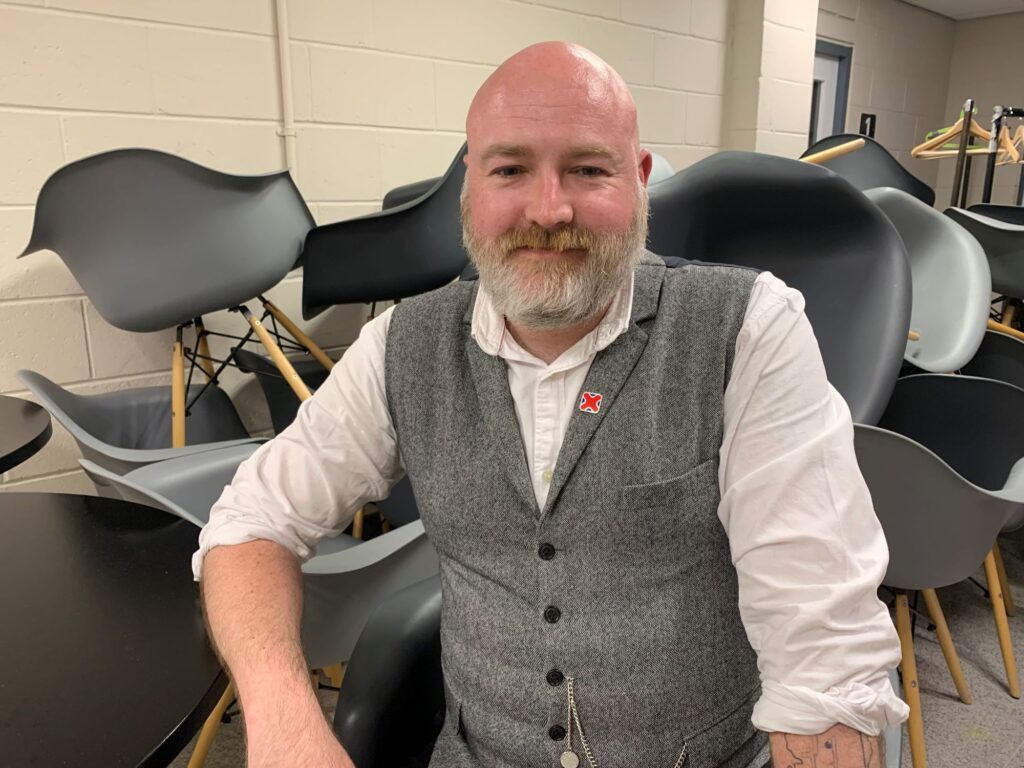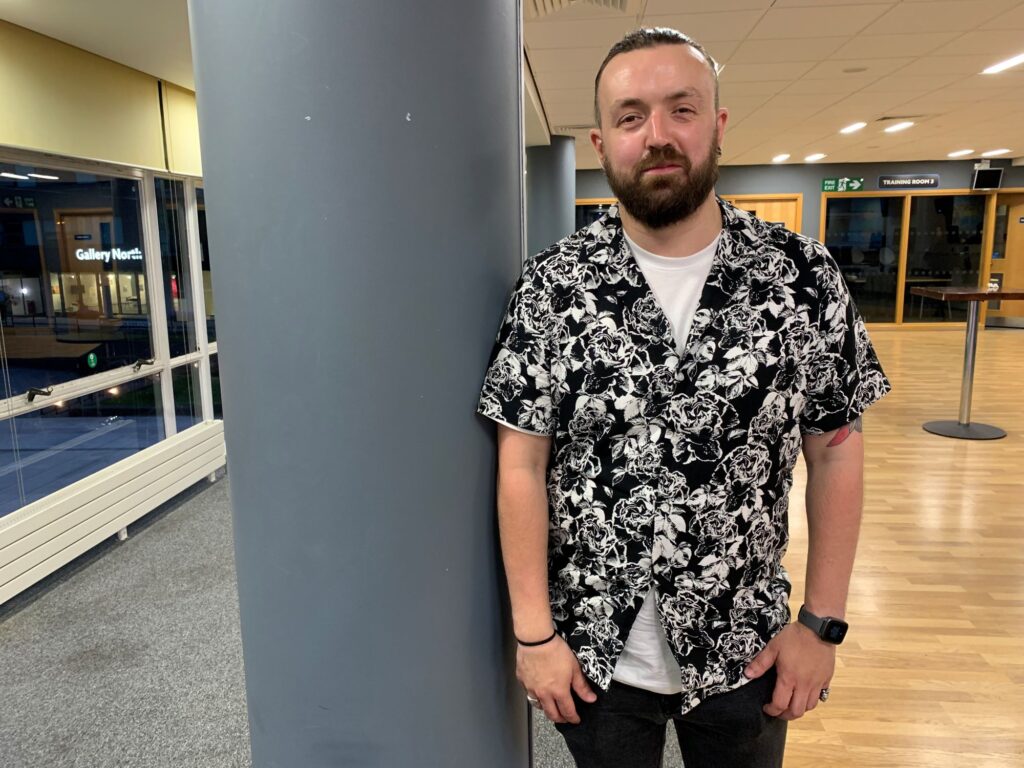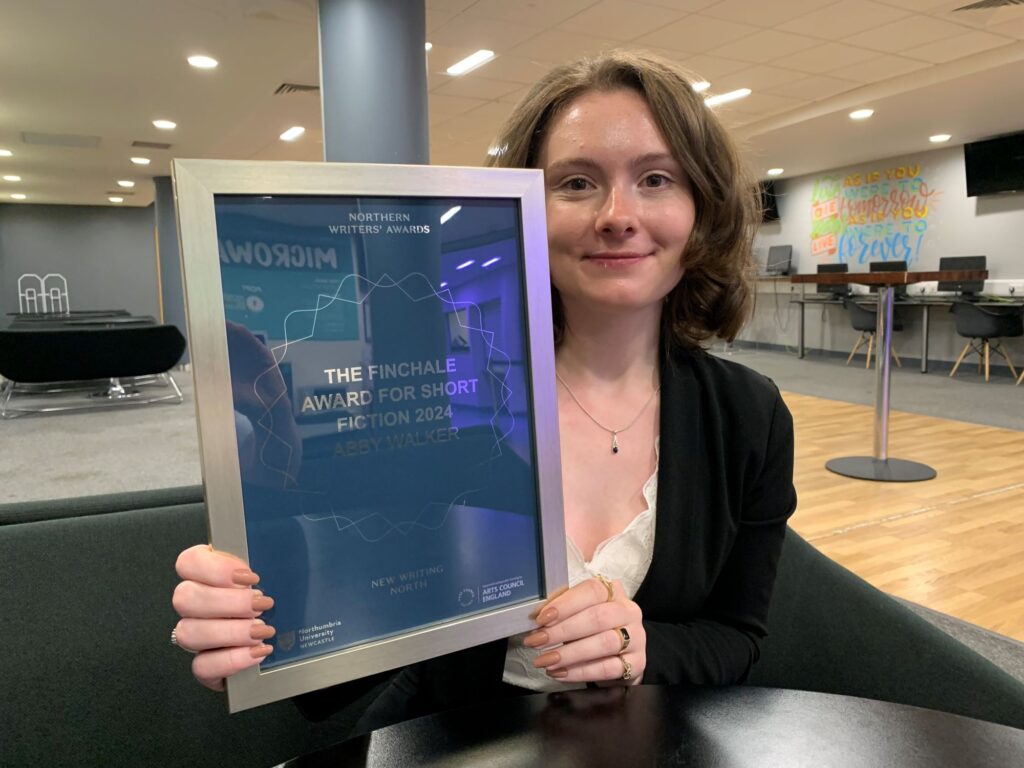
The 25 winners of the 25th Northern Writers’ Awards were rewarded and applauded this week at Northumbria University which is the headline sponsor of the event produced by New Writing North.
It was another joyous reflection of the writing talent that exists across the North and which is still to be properly recognised by publishers, most of whom are based in London.
Claire Malcolm, chief executive of New Writing North, is working diligently to change the mindset, as she has been since she came in as founding boss and Jill-of-all-trades at the writing development agency (eek!) last century.
She delivered her annual equivalent of the headmistress’s report and it was music to the ears of all who love and value the written or spoken word – lots of new initiatives and success stories, plenty of inroads into places where literature hasn’t traditionally flourished.
The 25 winners will have been heartened to learn there were a record-breaking 2,760 entries for the awards, part of England’s largest and longest-running writer development programme, which in total are worth £50,000 – plus unquantifiable amounts of validation and confidence-boosting.
Welcome to the 25th #NorthernWritersAwards! We're here at @NorthumbriaUni, ready to get on with the celebrations 🎉
— New Writing North (@NewWritingNorth) June 25, 2024
Join us via our YouTube livestream, and we'll be keeping you updated with all the action right here!https://t.co/8XnsztHx4P pic.twitter.com/MTubSGxzlB
Poet Andrew McMillan, whose first novel Pity has recently been published, was the amusing and affable host and there were readings from established writers Okechukwu Nzelu, who delivered the keynote speech, Andy Ruffell, Kit Fan and Carys Davies.
Spike Hale spoke about the Matthew Hale Award, named in memory of his talented late son, and there was a spirited performance by the Callerton Choir, exhibiting, remarked Andy Ruffell, all the confidence he wished he had.
David Roche, chair of New Writing North, brought proceedings to a close with a vote of thanks to the university, Arts Council England, other partners and those who had masterminded the event.
This cohort of winners from across the North included a good number from the North East and I skipped the dessert course to catch up with four of them in the ante-room, ducking into a storeroom with Stephen McGowan when the choir rehearsal grew a little boisterous.
You can meet them below.
But all the winners are named and celebrated on the New Writing North website.
Jessica Holmes, co-winner of the Sid Chaplin Award
Originally from Sheffield, Jessica moved to Durham “accidentally” about 18 months ago and works at the scholarship team at the university.
“My now husband is from Durham and I’d come up for what I thought was going to be a long weekend and then the first lockdown happened,” she explains.
“I ended up spending that with him and before I knew it we’d bought a house and were getting married.
“I call it my adopted home but it’s lovely. It’s smaller than Sheffield and I really like that.
“But the novel I’m writing, Skinned Knees, is set primarily in Sheffield and I’m revisiting places I grew up in.”

Jessica says she’s been writing since childhood when she’d make up “silly stories to make my parents laugh”.
She wrote her first novel aged 17 but says she’s not sure she’d call it a novel now.
She started writing seriously about seven years ago when her mother died, turning her life upside down.
“I had a lot of emotions and wasn’t sure how to deal with it. I was 21 and in my second year at university.
“I didn’t know anyone else who’d lost a parent at that age. All my life, if I’ve been through a bad patch, I’ve always gone to books but I couldn’t find any characters I could relate to.”
She embarked on what she describes as “quite a self-indulgent writing task”, spilling her feelings onto paper but attributing them to characters that came into her head.
“I think that was my way of coping, making it about someone else.
“In the beginning I wanted to see how the story ended to see what I would do next. Does that make sense?
- Read more: Second serve for tennis trailblazer
- Read more: Hannah Perry’s labour of love opens at Baltic
“Someone asked me if it was hard to write about at the time. Actually, no, because I wasn’t writing it thinking someone else was going to see it.
“I wrote it for me and it was the later drafts that I found quite painful. I almost felt sorry for the person it had happened to because I’m so much happier now and in a really good place in my life.”
What might become Jessica’s first published novel is in its final drafting stage and the Sid Chaplin Award, bringing a manuscript appraisal, is a welcome boost.
“I’m hoping when I’ve polished it, I can start sending it out,” says Jessica.
Laughing, she adds: “I used to think one day inspiration would strike suddenly and I’d be up for the Booker Prize but there came a point when I realised maybe this could go somewhere.
“That’s when I started structuring it. But when I got the email saying I’d won the award, I thought they’d emailed the wrong person.
“It’s nice in a way because, although it’s still horrible without mum, something good has come out of it. I’ve turned a bad time into something positive.”
Stephen McGowan, winner of the Northumbria University Student and Alumni Award
Stephen (we chatted in a store-room because the choir was warming up in the communal area, hence the pile of chairs) is from Durham but now lives in Sunderland.
For 10 years he worked in a bank but he says there came a time when he felt he badly needed a change.
Domestically, too, things were falling apart in what he regards as rather an unhappy period in his life.
Wrestling with his conscience, because kids were involved and he felt the need to earn a living, he finally decided five years ago to try for university and a creative writing course.

“I looked around and settled on Northumbria. Because it was so long since I’d been to college, they said I should do a foundation course before moving on to what I really wanted.
“That was amazing because it really helped. I did the foundation course and then three years of English literature and creative writing.
“I graduated last year, a first generation graduate so really happy, and then was offered the chance to do a master’s and I’m nearing the end of that.
“I’ve just got the dissertation to finish before the end of August and some of it is what I’ve won an award for this evening.”
At first he thought Joyland might end up being a novella but it’s turning into something bigger.
He describes it as “a cyber-punk noir story set in a dystopian Newcastle”.
A lecturer had directed him to the work of William Gibson, author of Neuromancer. He liked it and read more of his work, and then started delving deeply into the cyber-punk genre.
Then when someone said his dialogue reminded them of Raymond Chandler, he started reading him too.
Things are looking up. Quitting the bank didn’t usher in financial Armageddon and recently a teacher remarked on his son’s talent for writing stories at a parents’ evening.
And the North East, on paper anyway, is a dystopian nightmare following a civil war which has divided the country and seen Sunderland become the place where the workers live.
All in the garden is rosy.
“I’ve got friends who are authors and one of them helpfully introduced me to a literary agent,” says Stephen.
“It wasn’t big enough for them at the time but I guess in future I can say the first three chapters have won an award. At least it means people have confidence in my writing. Imposter syndrome exists.”
Adam Barrett, co-winner of the Sid Chaplin Award
Adam, as he says, has “been around” – originally from Northumberland, brought up in Sunderland and now living in County Durham.
“I’ve been writing since my mid to late teens, maybe 15 years, although I kept it quiet for about 10 years.
“Being brought up in Sunderland, and in that kind of footballing, beer-drinking kind of culture, mentioning in the pub, ‘Oh, I like to do a bit of writing’… well, it isn’t something you’d naturally do.
“Then in my late twenties I started sending out poems and short stories and saw some success.
“I do a bit of everything but my main drive is fiction. The award I’ve won was for this novel I’m working on.
“It’s called He Too Must Sleep, a line taken from a poem by Joseph Skipsey, the Northumbrian pitman poet, and it’s about a pit community in the 1860s.”
Adam says his degree was in history and local history in particular has always fascinated him.

Although creating fiction, he says he’s passionate about getting it right and has pored over diary entries, letters and poems.
Smiling, he says: “I’ve ‘stolen’ a lot, things that really happened, but turned them into this story.
“I guess it’s a celebration of North East history but also the reality of it – the poverty, the life expectancy, all that kind of thing. It’s about being proud of our history but being aware of what it entailed.”
Adam’s family is rooted in the region’s industrial past, his mother’s side in mining and his father’s in shipbuilding.
“My great grandad was a miner in Shiney Row and he had cousins who moved to New York. He was going to follow them and then the Wall Street crash happened in 1929 so he didn’t.
“We exist because he stayed here but recently we’ve been in touch with these American relatives.”
Adam says the first draft of his novel is pretty much finished.
He is delighted to have won the Sid Chaplin Award and that his son Michael was a judge.
“Sid Chaplin has been a massive influence and for Michael to say I can write is all the encouragement I need.
“If someone had emailed and said Michael Chaplin liked my work, that would have been enough for me. That would have been amazing.”
A former teacher, Adam now works as an educational writer, creating resources for teachers.
It’s not what he wants for the rest of his life, though. “It’s very different to creative writing,” he stresses. “Very factual, all statistics, that kind of thing.”
Abby Walker, winner of the Finchale Award for Short Fiction
Abby, who is 23 and lives in Bishop Auckland, says writing is something she has always done.
She did a creative writing degree with the Open University and is currently working for a master’s degree with Manchester Metropolitan University, specialising in novel writing.
“I’m in my final year of that and in January I have to submit my novel. It’s a gothic horror novel called The House In Order.
“I tend to write gothic fiction, folk horror. My novel came out of the November Covid lockdown when I started writing as a total escape.
“I’d been writing but never finished anything and I decided to really take it seriously at that point.”
A big inspiration, she says, is the American horror writer Shirley Jackson. But she confesses she “read Stephen King way too young”.
Did that traumatise her, I wonder. “Yes, it did,” she giggles. “But this is the result of that.”

Abby is doing her master’s online, working part-time in libraries during the day and studying by night.
She works a lot with children and jokes: “There are only so many times you can read Julia Donaldson aloud before you need to get into horror.”
It wasn’t the novel that won her the Finchale Award for Short Fiction, of course, the prize sponsored by novelist Benjamin Myers, a former Northern Writers’ Award winner.
The short story she submitted is called The Killing Thing and she confesses she wrote it during a tutorial when she should have been focusing on what was being said.
She was pretending to take notes but produced a well-rounded story. When her tutor – the same tutor to whom she hadn’t been paying attention, “although she doesn’t know that” – said she liked it, Abby was encouraged to enter it for the award.
Having attended past events organised by New Writing North and found them really helpful, Abby says she aims to give everything she’s got to writing before commitments start to pile up.
“I work part-time so can dedicate a lot of time to writing and if nothing happens I can’t be disappointed if I’ve given it everything now. That’s my thinking.”
@DavidJWhetstone











